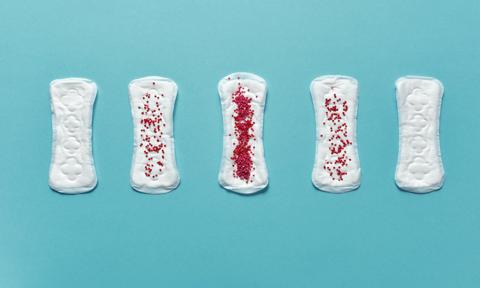
German nonprofit WASH United started the practice of Menstrual Hygiene Day on May 28, 2013, to spearhead the process of removing the stigma around menstruation, a major factor in contributing to poor menstrual health of women across the world, by raising awareness and engaging decision-makers to make a change at global, national, and local levels. There are over 355 million menstruating women in India yet the subject is still taboo in most parts of the country. A majority of women still subscribe to unfounded myths and health practices when it comes to their periods as they feel embarrassed about talking to a specialist.
READ: Are Period Blood Face Masks The Secret To Glowing Skin?
Facts About Menstrual Hygiene
As Menstrual Hygiene Day approaches, we decided to take a deep dive into some astounding facts about menstrual health in India and here’s what we found out…
Lack of access to Sexual Health Education

71% of girls in India reported that they had no knowledge about menstruation before getting their first period. This is mainly because of the stigma around sexual health in the country that also breeds the belief that menstruating is ‘impure’. Because menstruation is primarily viewed as a women’s issue, the point of information on the subject for young girls is usually their mothers. A report suggested that 70% of mothers in India still consider menstruation “dirty”, indicating that a lot of work is remaining to be done about eradicating these beliefs and taboos.
Poor Menstrual Hygiene leads to School Drop-outs

Global nonprofit social advisory form FSG released a report that revealed 70% of the cases of reproductive diseases in India are due to poor menstrual hygiene. Women in rural areas often use dirty rags as a replacement for sanitary pads. 88% of women in India use alternatives like rags, ash, hay, or sand. Commercial sanitary napkins are usually too expensive for low-income families and low-cost pads vary in quality and reach. Moreover, 63 million adolescent girls in India, reportedly, do not have access to a toilet in their homes or a place to change their pads in private. A 2014 report by the NGO Dasra, titled Spot On!, revealed that nearly 23 million girls in India drop out of school annually because of a lack of menstrual health management facilities. Girls who don’t drop out, miss up to five days of school a month because of this.
The 2017 ‘Blood’ Tax

In 2017, the Indian Government caused an uproar when they classified menstrual products as ‘luxury goods’ and slapped a 12% tax on them. Activists and protesters challenged the decision in court and wrote petitions, some with over 4,00,000 signatures, claiming that this move will worsen the problem of inaccessibility to menstrual products. Thankfully, the protests and furor had an effect and the government made menstrual products tax-free in 2018.
‘Suvidha’ at a Low Cost

In 2018, the Ministry of Chemicals and Fertilizers announced that the Department of Pharmaceuticals has developed a low-cost oxo-biodegradable sanitary napkin, called Suvidha, that disintegrates after disposal. Not only do these pads offer an eco-friendly alternative to regular sanitary napkins, which can take about 500 years to fully disintegrate, but this initiative also attempts to solve the problem of inaccessibility to clean menstrual products in rural areas. The pads were available at a low cost of INR 2.5 at the time of launch but are now available at just 1 rupee per pad at 6300 centers across the country.
Oscar Acknowledgment
The 2018 documentary Period. End of Sentence directed by Rayka Zehtabchi won the Best Documentary (Short Subject) at the 91st Academy Awards. The short film followed a group of local women in Hapur, Uttar Pradesh, as they learn how to operate a machine that makes low-cost biodegradable sanitary napkins and then sell it to other women at affordable prices. This leads to an improvement in feminine hygiene as they get easier access to safer products and also empowers the women to shed the taboos surrounding menstruation in the community. It also helps in boosting the economy of the community.






